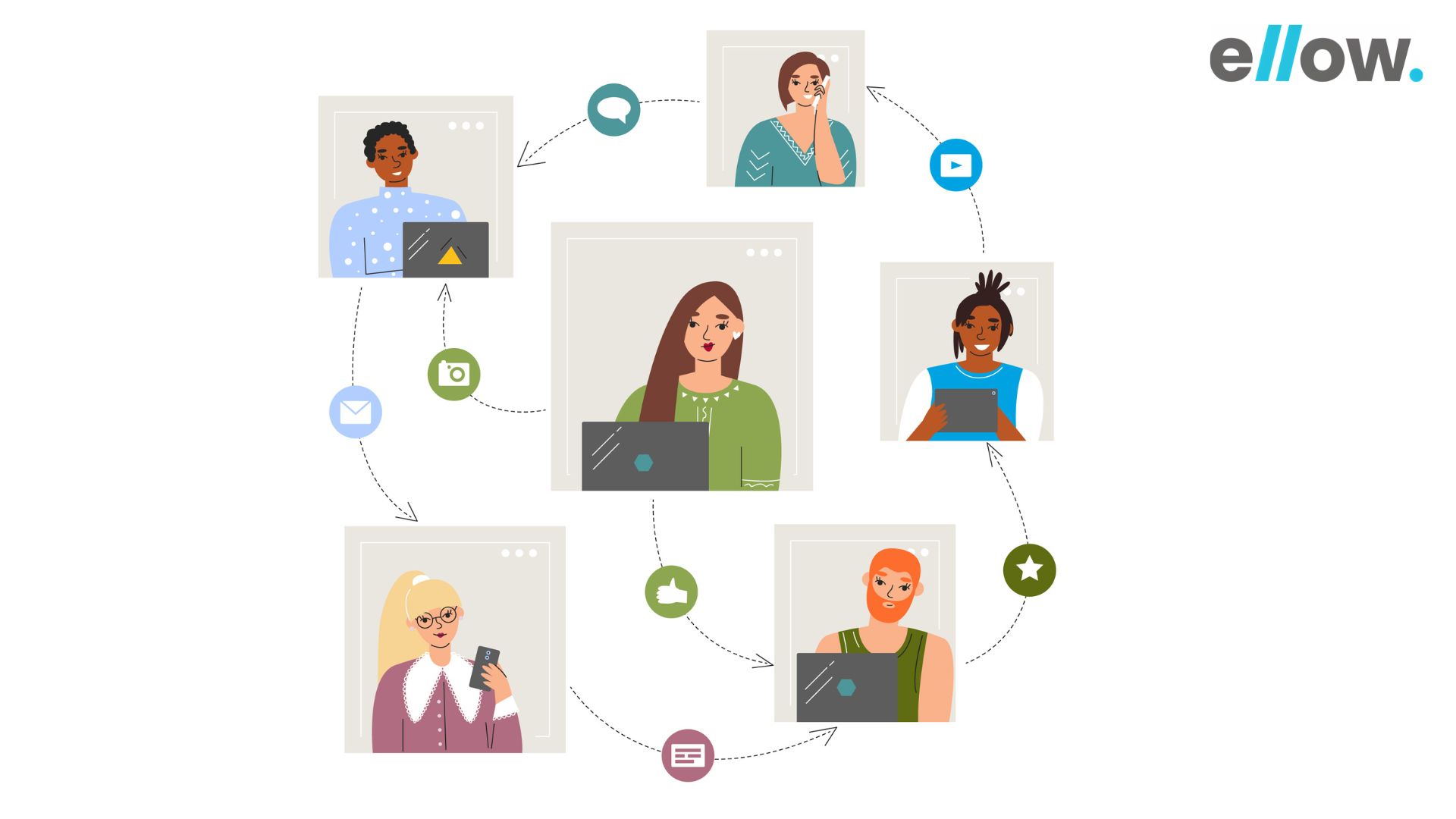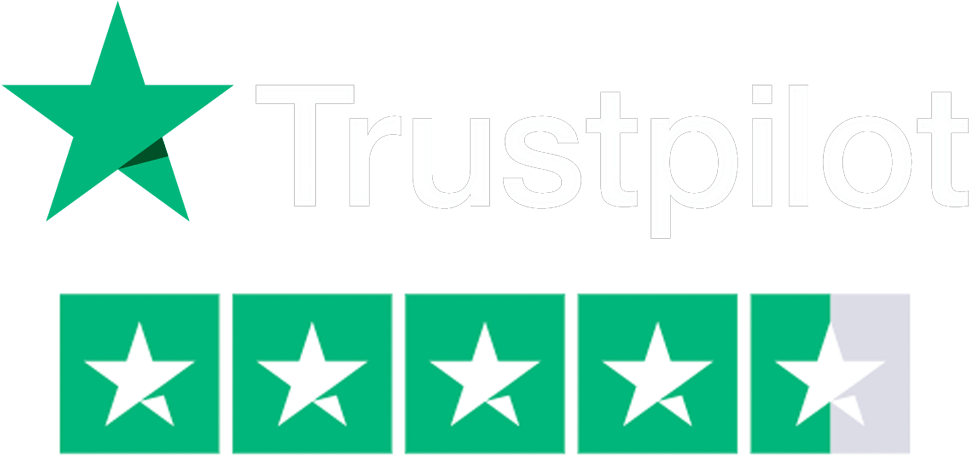Blog
How to Create A Diverse and Inclusive Remote Workforce?
As an employer, you must know the value of your employees in achieving organisational success. Giving them opportunities to grow and build a network keeps them engaged in an organisation. But there comes a point when they need help to express their concerns, boost their learning, and gain exposure to leadership roles.
This gets even more troublesome for remote employees because of their geographical limitations. Now comes the question, how can a diverse remote workforce stay engaged and productive?
Let’s take you through a diverse knowledge of launching DEI (Diversity, Equity & Inclusion) initiatives in your workplace, making your organisation inclusive, and onboarding a more diverse remote workforce.

Table of Contents
Remote work has become a trend these days, seeing how companies are growing by providing work-from-anywhere opportunities. Organisations have discovered the full potential of employees when they are given the freedom to work remotely.
Interestingly, almost 74% of companies are shifting to permanent remote work for their employees. This gives them a chance to get a breather in their comfort zone and reset for productivity. Trusting them is vital with all the ifs and buts of managing your remote force.
Is remote work really helping employees?
Working remotely allows people to balance work and their personal life. As it turns out, they become much more productive. But, like a coin has two sides, there’s a whole different story at the other end of this bargain. It gets overwhelming even if organisations create remote job opportunities for employees globally.
- The pressure of work increases
- Deadlines become hard to beat
- People face burnout
- Disconnection between employees & management
- Unable to shut down
- Lack of supportive management
- Unstable feedback mechanism
Being humble about understanding how to manage a remote workforce, companies should now also focus on acknowledging the efforts of a diverse workforce. They come with a world of perspective. Giving them equal importance at work is just the start; how to grow diversity in your organisation runs parallel with it. Now let’s take a deeper dive into diversity.
Let’s dig deeper…
What is Diversity?
First of all, let’s understand what diversity is. Diversity represents employees from different backgrounds, such as race, age, gender, sexual orientation, religion & colour. Because of their diverse background, they have a whole different perspective at play.
Organisations can use those stories, perspectives, and ideas to build something even better. So that they can bring more people/refer people from their backgrounds and build a diverse team.
What is Inclusion?
Inclusion is part and parcel of a healthy organisational atmosphere where every employee feels supported and heard, gains knowledge, takes ownership of different projects (helping them push out of their comfort zone), and learns new ways to tackle challenges. Inclusivity rounds up to acknowledging the efforts of every employee.
One of the most challenging aspects, especially after the emergence of remote working, is becoming eligible for the professional world, with relevant skills and understanding of technology. Since the geographical barriers aren’t a complication anymore, this gives access to inviting diversity.
Onboarding a diverse talent is one thing, and managing them is another. Organisations must have adequate support to help their diverse talent achieve their full potential.
As a part of today’s job market, 67% of job seekers consider workplace diversity when considering an employment opportunity. Seeing how practical the eligibility has become, it’s essential for organisations to blend in and stay updated with the current job scenarios.
Diversity in an Organization

Organisations face severe challenges when it comes to managing their remote employees. The barrier is that employees cannot go to their manager’s desk whenever they need to, making things inaccessible.
For employees, seeking help in their daily schedule, prioritising tasks, managing workload, and even taking breaks in between, inviting them on calls frequently gets time-consuming.
Even though some of these issues appear smaller, when ignored, these can create severe repercussions for employees, such as getting drained out, having no creative space available, stress and anxiety, resulting in unhealthy physical and psychological behaviour.
Additionally, your diverse employees may start reflecting on this in their daily calls; they won’t be available, they have incomplete tasks, undelivered deadlines and so on. They may even develop a sense that their organisation isn’t supporting them, rectifying their pain points, promoting them, or even appreciating their work.
This creates ripples leading to no organisational growth. Remember how we talked about these issues being small? Well, here’s the more significant impact!
Almost 13% of employees have been disrespected at work, and even 14% of employees feel that they are not valued.
Also read: 8 Ways To Get Clients As A Freelance Web Developers
As a reflection of the above, employees who bear such outcomes in an organisation and that too, when working remotely, creates a negative impact. Seeing themselves not happy at work will start to reflect on their daily tasks.
They’ll be less attentive in meetings, become less involved in teams, block their learning path, and face a massive hit on their career.
Create Additional Support for Diversity
Diversity in organisations reflects a perspective of inclusivity. It’s the very fabric which helps organisations succeed. However, seeing every other organisation pushing itself towards supporting a diverse workforce, we have something that can make you unique.
Let’s discuss some of the initiatives an organisation can take to create a diverse and inclusive remote workforce:
Revamping the company policy structure:
Organisations must revisit their policies and include a separate space for diverse groups and an inclusive environment. This will render a positive approach for the community within the organisation.
Job Openings for diversity:
It is said that great minds build great teams. Solid and diverse minds build even more substantial teams. If you keep your diverse workforce happy, they will refer more and more talented people from within their community. Apart from referrals, organisations can explore recruitment channels that help diverse groups in getting hired; this will promote a rich culture of equity.
Organise workshops and training sessions:
Knowledge should always be shared, information should always be utilised, and learning should happen every day; organisations should seek people from diverse communities and remove unnecessary biases within the organisation.
Also read: How To Reduce Hiring Biases To Recruit The Best Fits
Organise leadership programs:
Organisations should invest in resources that help them target potential leaders from diverse communities so they won’t feel left behind. These opportunities help maintain a balance within the organisation and reflect inclusivity in the workplace.
Build steady feedback mechanisms:
Feedback is one of the most significant growth factors. It positively impacts the learning process and showcases ways to improve in the future. Since feedback boosts transparency, having a strategised mechanism is of utmost importance so that employees can reach out to their managers when in doubt.
Build networking opportunities:
Help your diverse workforce to connect with peers. Develop a communication platform for remote employees to help build and maintain connections across the organisation. This will allow them to understand different perspectives and grow their network.
Build upskilling platforms & involve gamification:
Opt for different software and tools to help your diverse employees learn new skills. Upskilling opportunities with the help of different certification programs or courses will allow them to grow their knowledge and gain confidence. Additionally, align various gamification options, like badges and ranking systems; recognise their talent by giving rewards.
This will help them stay engaged, even if they are working remotely. Almost 92% of business leaders agree that a strategic workforce education program should help an organisation achieve its diversity and inclusion goals.
Organise mentoring programs:
Mentoring programs are the key to helping your diverse employees get exposed to hidden talent. Having a mentor by their side, they can share their perspective and gain new things in return. This will motivate them and act as a company when they’re recovering from burnout or stress.
Strengthen your Diverse Community

Acting on these organisational initiatives will help them maintain a healthy connection with the organisational values and goals. Apart from that, these activities promote diversity and inclusivity within the organisation and keep your remote workforce engaged.
It can be a significant challenge for organisations to act on these initiatives, but there’s always a start. Transform your organisation into a community of knowledge sharing, primarily online, where every leader and every team member can play a part by being a mentor and a coach for others so that the diversity in your organisation can reach its maximum potential.
For example, someone who’s been with an organisation for a longer time must have spent time researching. They can share their knowledge with the less experienced employees so that they don’t have to invest that much of years of effort in researching rather than focus just on their development.
This can help remote employees stay involved in learning something new and produce better outcomes for themselves and the organisation.
Also read: Why Should Developers Take Skill Assessment Tests?
If organisations successfully take good care of their diverse remote workforce, this will promote inclusivity in the organisation. Ultimately, it’ll create a healthy and positive environment that will focus on development. Once this is done, success will be on its way!
FAQs on Diversity and Inclusion At Workplace
As a leader, you should care about having a diverse and inclusive workforce. According to a report by Harvard Business Review, companies who have a diverse and inclusive workforce are 70% more likely to capture new markets.
The benefits of having a diverse and inclusive workforce for an organisation are:
- Access to a wider pool of talent
- A positive brand image
- Greater creativity and performance
The barriers to having a diverse and inclusive workforce are:
- Lack of leadership support
- Lack of tools
- Lack of policies and budget
Organizations can measure the success of their Diversity and Inclusion efforts by tracking diversity metrics such as representation at all levels of the organization, turnover rates, and employee engagement. Organizations can also conduct surveys and focus groups to gather employee feedback and identify areas for improvement.
Best practices for promoting Diversity and Inclusion in the workplace include setting clear goals and metrics, providing training and resources to employees, creating a diverse and inclusive hiring process, promoting diversity in leadership, and fostering a culture of inclusion and belonging.
Diversity and Inclusion can benefit an organization’s bottom line by improving employee engagement, reducing turnover, increasing innovation and creativity, and improving overall performance. A diverse and inclusive workplace can also help to attract and retain top talent, and improve an organization’s reputation and brand.





